I have been consistently getting a "upstream sent too big header while reading response header from upstream" error in my nginx log.
To start with, this is the architecture I have:
This error is logged by the nginx server running on port 8080.
2018/07/06 11:17:29 [error] 18857#18857: *39687 upstream sent too big header while reading response header from upstream, client: 127.0.0.1, server: amr.com.au, request: "POST /wp-admin/admin-ajax.php HTTP/1.1", upstream: "fastcgi://unix:/var/run/php/php7.1-fpm.sock:", host: "amr.com.au", referrer: "https://amr.com.au/wp-admin/"
i have tried this Upstream too big - nginx + codeigniter but to no avail.
I will put my php, nginx and varnish config here for reference.
varnish:
vcl 4.0;
backend default {
.host = "127.0.0.1";
.port = "8080";
.connect_timeout = 600s;
.first_byte_timeout = 600s;
.between_bytes_timeout = 600s;
.max_connections = 800;
}
acl purger {
"localhost";
"127.0.0.1";
}
sub vcl_recv {
# Forward client's IP to the backend
if (req.restarts == 0) {
if (req.http.X-Real-IP) {
set req.http.X-Forwarded-For = req.http.X-Real-IP;
} else if (req.http.X-Forwarded-For) {
set req.http.X-Forwarded-For = req.http.X-Forwarded-For + ", " + client.ip;
} else {
set req.http.X-Forwarded-For = client.ip;
}
}
# pipe on weird http methods
if (req.method !~ "^GET|HEAD|PUT|POST|TRACE|OPTIONS|DELETE$") {
return(pipe);
}
if (req.method != "GET" && req.method != "HEAD") {
return(pass);
}
if (req.http.X-Requested-With == "XMLHttpRequest"){
return (pass);
}
if (client.ip != "127.0.0.1" && req.http.host ~ "amr.com.au") {
set req.http.x-redir = "https://amr.com.au" + req.url;
return(synth(850, ""));
}
if (req.method == "PURGE") {
if (!client.ip ~ purger) {
return(synth(405, "This IP is not allowed to send PURGE requests."));
}
return (purge);
}
# Pass through the WooCommerce dynamic pages
if (req.url ~ "^/(cart|my-account/*|checkout|wc-api/*|addons|logout|lost-password|product/*)") {
return (pass);
}
# Pass through the WooCommerce add to cart
if (req.url ~ "\?add-to-cart=" ) {
return (pass);
}
# Pass through the WooCommerce API
if (req.url ~ "\?wc-api=" ) {
return (pass);
}
}
sub vcl_synth {
if (resp.status == 850) {
set resp.http.Location = req.http.x-redir;
set resp.status = 302;
return (deliver);
}
}
sub vcl_purge {
set req.method = "GET";
set req.http.X-Purger = "Purged";
return (restart);
}
sub vcl_backend_response {
if (beresp.status >= 300) {
if (beresp.status == 500) {
return (retry);
}
set beresp.uncacheable = true;
set beresp.ttl = 2s;
}
else
{
set beresp.ttl = 24h;
set beresp.grace = 1h;
}
if (bereq.url !~ "wp-admin|wp-login|product|cart|checkout|my-account|/?remove_item=|/?wc-ajax=") {
unset beresp.http.set-cookie;
}
}
sub vcl_deliver {
if (req.http.X-Purger) {
set resp.http.X-Purger = req.http.X-Purger;
}
}
sub vcl_pipe {
return (pipe);
}
sub vcl_pass {
return (fetch);
}
nginx.conf
user admin;
worker_processes auto;
pid /run/nginx.pid;
include /etc/nginx/modules-enabled/*.conf;
worker_rlimit_nofile 50000;
events {
use epoll;
worker_connections 100000;
multi_accept on;
}
http {
##
# Basic Settings
##
sendfile on;
tcp_nopush on;
tcp_nodelay on;
keepalive_timeout 65s;
reset_timedout_connection on;
types_hash_max_size 2048;
server_tokens off;
include /etc/nginx/mime.types;
default_type application/octet-stream;
##
# Gzip Settings
##
gzip on;
gzip_min_length 1000;
gzip_types text/plain text/css application/json application/x-javascript text/xml application/xml application/xml+rss text/javascript;
gzip_disable "msie6";
open_file_cache max=50000 inactive=20s;
open_file_cache_valid 30s;
open_file_cache_min_uses 2;
client_max_body_size 512m;
proxy_buffer_size 128k;
proxy_buffers 4 256k;
proxy_busy_buffers_size 256k;
include /etc/nginx/conf.d/*.conf;
include /etc/nginx/sites-enabled/*;
}
nginx sites avaliable
server {
listen 443 ssl http2;
listen [::]:443 ssl http2;
server_name amr.com.au;
port_in_redirect off;
server_tokens off;
more_clear_headers Server;
ssl on;
ssl_certificate_key /etc/letsencrypt/keys/0001_key-certbot.pem;
ssl_certificate /etc/letsencrypt/live/amr.com.au/fullchain.pem;
ssl_protocols TLSv1 TLSv1.1 TLSv1.2;
ssl_ciphers 'ECDHE-ECDSA-CHACHA20-POLY1305:ECDHE-RSA-CHACHA20-POLY1305:ECDHE-ECDSA-AES128-GCM-SHA256:ECDHE-RSA-AES128-GCM-SHA256:ECDHE-ECDSA-AES256-GCM-SHA384:ECDHE-RSA-AES256-GCM-SHA384:DHE-RSA-AES128-GCM-SHA256:DHE-RSA-AES256-GCM-SHA384:ECDHE-ECDSA-AES128-SHA256:ECDHE-RSA-AES128-SHA256:ECDHE-ECDSA-AES128-SHA:ECDHE-RSA-AES256-SHA384:ECDHE-RSA-AES128-SHA:ECDHE-ECDSA-AES256-SHA384:ECDHE-ECDSA-AES256-SHA:ECDHE-RSA-AES256-SHA:DHE-RSA-AES128-SHA256:DHE-RSA-AES128-SHA:DHE-RSA-AES256-SHA256:DHE-RSA-AES256-SHA:ECDHE-ECDSA-DES-CBC3-SHA:ECDHE-RSA-DES-CBC3-SHA:EDH-RSA-DES-CBC3-SHA:AES128-GCM-SHA256:AES256-GCM-SHA384:AES128-SHA256:AES256-SHA256:AES128-SHA:AES256-SHA:DES-CBC3-SHA:!DSS';
ssl_prefer_server_ciphers on;
ssl_session_cache shared:SSL:20m;
ssl_session_timeout 60m;
ssl_session_tickets off;
# Diffie-Hellman parameter for DHE ciphersuites, recommended 2048 bits
ssl_dhparam /etc/nginx/ssl/dhparam.pem;
add_header Strict-Transport-Security "max-age=31536000";
add_header X-Content-Type-Options nosniff;
add_header X-Frame-Options "SAMEORIGIN";
add_header X-XSS-Protection "1; mode=block";
# enable ocsp stapling (mechanism by which a site can convey certificate revocation information to visitors in a privacy-preserving, scalable manner)
# http://blog.mozilla.org/security/2013/07/29/ocsp-stapling-in-firefox/
resolver 8.8.8.8 8.8.4.4;
ssl_stapling on;
ssl_stapling_verify on;
ssl_trusted_certificate /etc/letsencrypt/live/amr.com.au/fullchain.pem;
location = /favicon.ico {
log_not_found off;
access_log off;
}
location = /robots.txt {
allow all;
log_not_found off;
access_log off;
}
location / {
proxy_pass http://127.0.0.1:80;
proxy_http_version 1.1;
# proxy_connect_timeout 300s;
# proxy_send_timeout 300s;
# proxy_read_timeout 300s;
# send_timeout 300s;
# proxy_set_header Connection "";
# proxy_set_header Host $http_host;
# proxy_set_header X-Forwarded-Host $http_host;
# proxy_set_header X-Real-IP $remote_addr;
# proxy_set_header X-Forwarded-For $proxy_add_x_forwarded_for;
# proxy_set_header X-Forwarded-Proto https;
# proxy_set_header HTTPS "on";
# time out settings
proxy_connect_timeout 159s;
proxy_send_timeout 600s;
proxy_read_timeout 600s;
# proxy_buffer_size 256k;
# proxy_buffers 32 256k;
# proxy_busy_buffers_size 256k;
# proxy_temp_file_write_size 256k;
proxy_pass_header Set-Cookie;
proxy_redirect off;
proxy_hide_header Vary;
proxy_set_header Accept-Encoding '';
proxy_ignore_headers Cache-Control Expires;
proxy_set_header Referer $http_referer;
proxy_set_header Host $host;
proxy_set_header Cookie $http_cookie;
proxy_set_header X-Real-IP $remote_addr;
proxy_set_header X-Forwarded-Host $host;
proxy_set_header X-Forwarded-Server $host;
proxy_set_header X-Forwarded-For $proxy_add_x_forwarded_for;
access_log /var/www/logs/ssl-access.log;
error_log /var/www/logs/ssl-error.log error;
}
}
server {
listen 8080;
listen [::]:8080;
server_name amr.com.au;
root /var/www/amr-prod;
index index.php;
port_in_redirect off;
client_header_buffer_size 2M;
large_client_header_buffers 16 2M;
client_body_buffer_size 100M;
client_max_body_size 100M;
fastcgi_buffers 256 200k;
access_log /var/www/logs/backend-access.log;
error_log /var/www/logs/backend-error.log warn;
rewrite ^/sitemap(-+([a-zA-Z0-9_-]+))?\.xml$ "/index.php?xml_sitemap=params=$2" last;
rewrite ^/sitemap(-+([a-zA-Z0-9_-]+))?\.xml\.gz$ "/index.php?xml_sitemap=params=$2;zip=true" last;
rewrite ^/sitemap(-+([a-zA-Z0-9_-]+))?\.html$ "/index.php?xml_sitemap=params=$2;html=true" last;
rewrite ^/sitemap(-+([a-zA-Z0-9_-]+))?\.html.gz$ "/index.php?xml_sitemap=params=$2;html=true;zip=true" last;
location / {
try_files $uri $uri/ /index.php?$args;
}
location ~ \.php$ {
try_files $uri $document_root$fastcgi_script_name =404;
fastcgi_split_path_info ^(.+\.php)(/.+)$;
include fastcgi_params;
fastcgi_index index.php;
fastcgi_param SCRIPT_FILENAME $document_root$fastcgi_script_name;
fastcgi_param HTTPS on;
fastcgi_pass unix:/var/run/php/php7.1-fpm.sock;
fastcgi_buffer_size 128k;
fastcgi_buffers 4 256k;
fastcgi_busy_buffers_size 256k;
fastcgi_read_timeout 240s;
}
}
also for reference:
awk '($9 ~ /200/) { i++;sum+=$10;max=$10>max?$10:max; } END { printf("Maximum: %d\nAverage: %d\n",max,i?sum/i:0); }' access.log
Maximum: 62833994 Average: 68531
Can someone help me work out why im getting that error? It doesnt seem to make any sense to me?? It looks like I have the configuration correct.
Thanks in advance,
Mike
EDIT:
So, I made a replica server, and turned off Varnish, and hey presto, it works.. So theres something going on in Varnish. I havent had time to investigate it yet, but I will try to this week and update if I can work it out.
